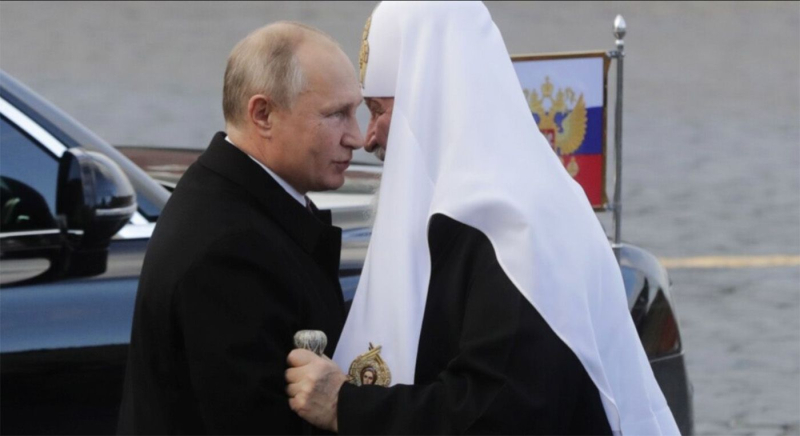What were the differences in the positions of Putin and Kirill/Photo by rosSMI Analysts said that the head of the Russian Orthodox Church Kirill made statements , contradictory to Putin's position. In particular, they do not correspond to the efforts of Vladimir Putin. ISW believes that Kirill's statements contrast with Putin's latest attempts to present himself as a centrist figure and restore the concept of the “Russian world”. Indeed, the other day the head of the Kremlin simplified the acquisition of Russian citizenship by citizens of Belarus, Kazakhstan and Moldova. The head of the Kremlin-controlled Russian Orthodox Church, Patriarch Kirill, has made a series of anti-immigrant and xenophobic statements that directly contradict Russian President Vladimir Putin's efforts to restore an inclusive ideology of the “Russian world”, analysts said. They remembered that Kirill, during the Moscow diocesan meeting on December 20: “If such trends continue, then Russian Orthodox people will “lose themselves, lose Russia,” Kirill said. The American Institute for the Study of War explains that these statements by Kirill contrast with Putin's latest attempts to present himself as a centrist figure and restore the concept of a “Russian world” that includes all people of different ethnic and religious backgrounds who lived or are living in the geographical territories that belonged to Kyiv. Rus', the Muscovite kingdom, the Russian empire, the Soviet Union and modern Russia. So, at a meeting of the Council of Legislators on December 20, Putin said that supposedly “the Russian constitution and government are trying to ensure harmony in a diverse and great Russia”, reiterating its efforts to present the aggressor country as an inclusive and harmonious multicultural Russian state. ISW analysts believe that Vladimir Putin: < p class="bloquote cke-markup">Kirill’s anti-migrant and xenophobic rhetoric is more closely connected with the Russian government’s policies regarding migrants and non-Russian ethnic groups than President Vladimir Putin’s declared inclusivity within the “Russian world,” analysts said.< /p> According to them, these narratives and policies are contradictory and could ultimately complicate Putin's efforts to appease different groups in Russia and provoke further inter-ethnic and inter-religious conflicts.
What are the differences between the positions of Putin and Kirill
Putin continues to pursue an aggressive policy
The “Russian World” is not entirely “Russian”: ISW noticed a certain split between Putin and Patriarch Kirill
54

